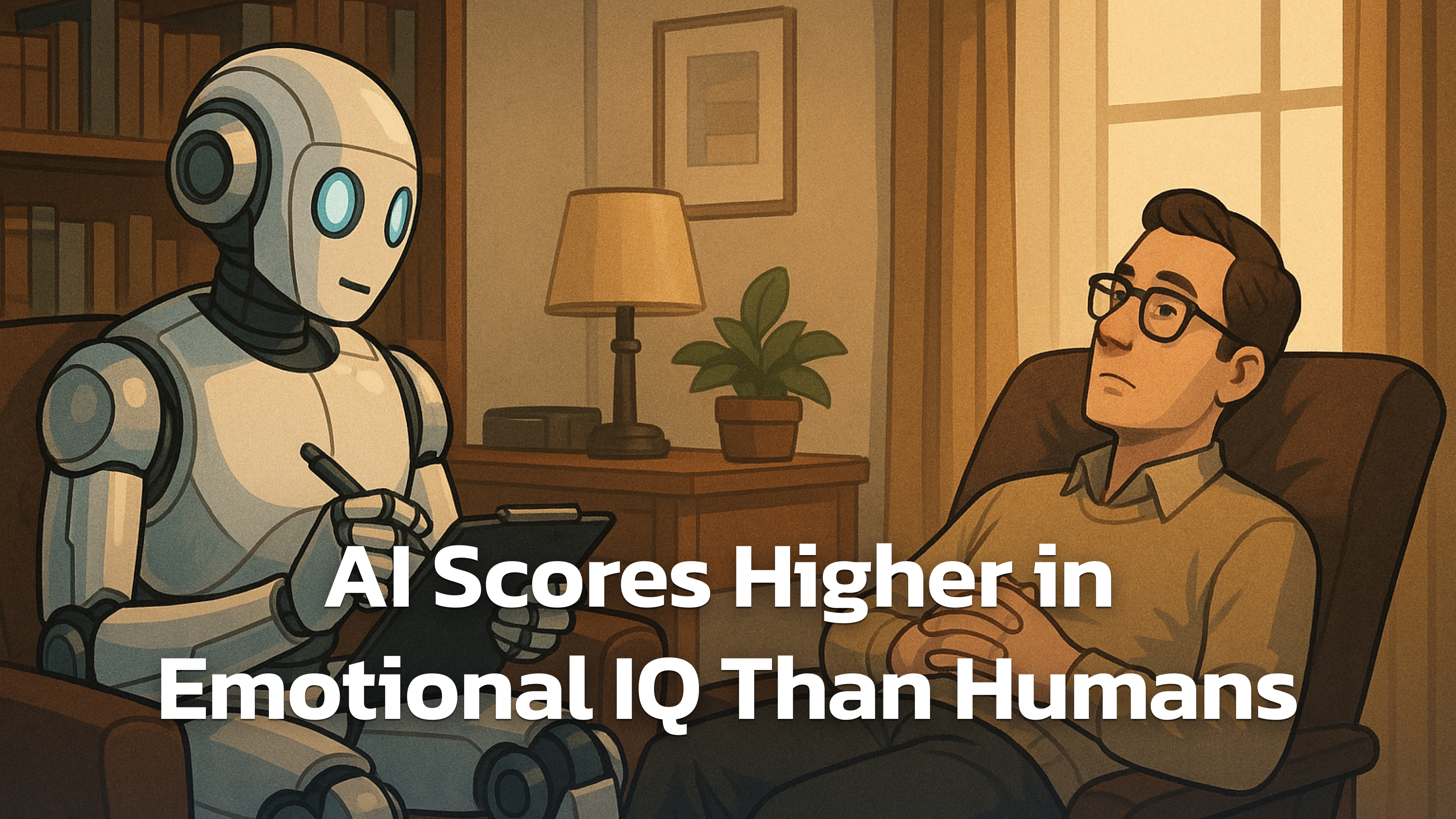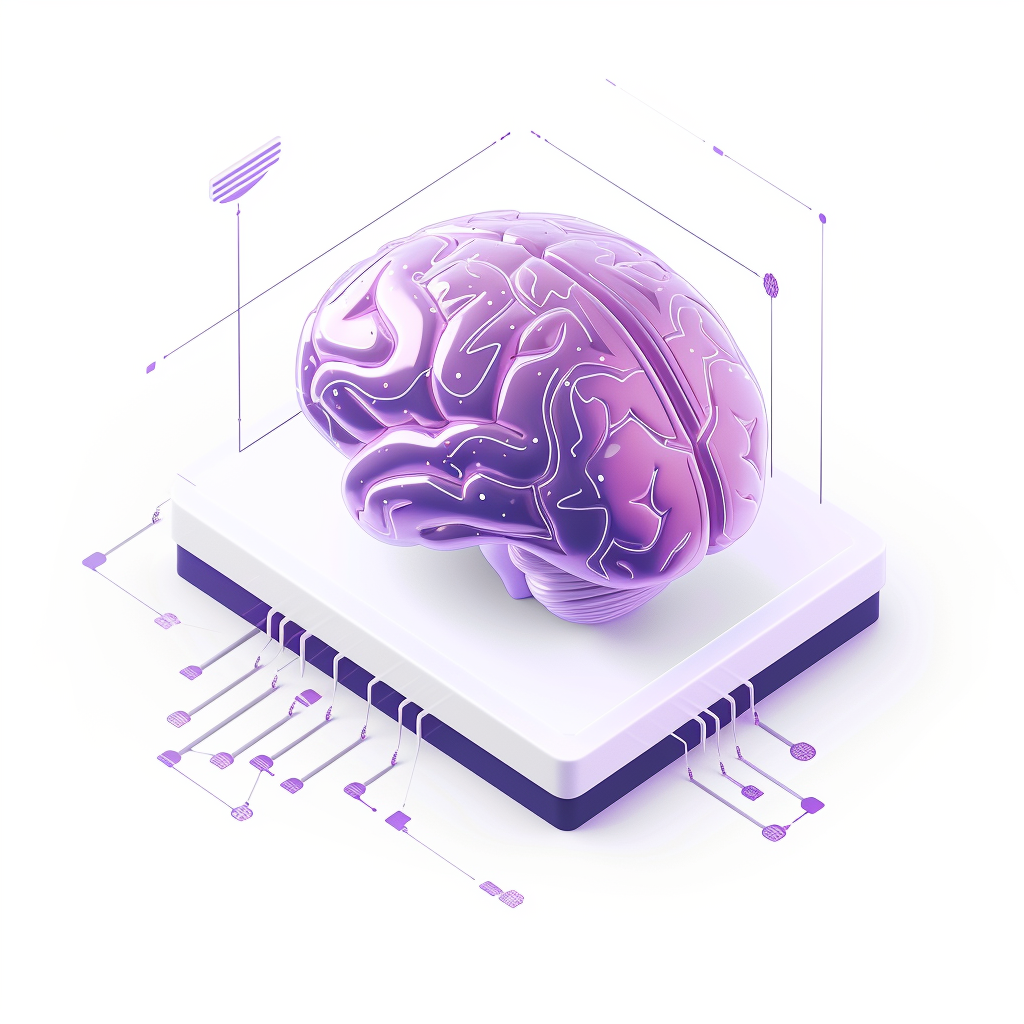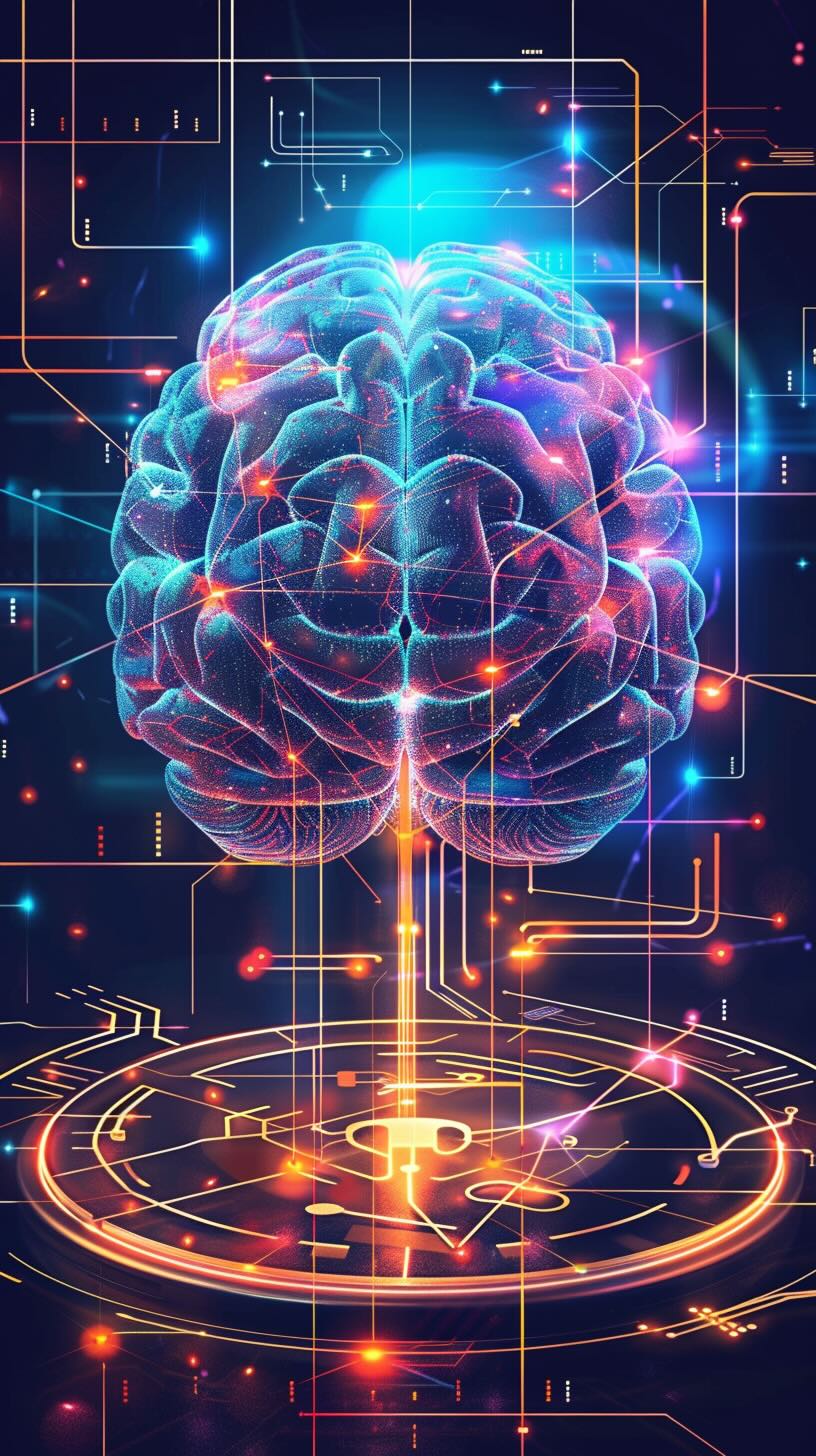In a groundbreaking revelation, artificial intelligence has surpassed human performance in emotional intelligence assessments. A collaborative study by the University of Geneva and the University of Bern evaluated six generative AI models, including ChatGPT-4, Claude 3.5 Haiku, and Gemini 1.5 Flash, using five standard emotional intelligence tests.The results were astonishing: AI models achieved an average accuracy of 81%, significantly outperforming the human average of 56%.
This finding challenges the long-held belief that emotional intelligence is a uniquely human trait. The AI models not only understood and interpreted emotional cues effectively but also suggested appropriate behaviors in emotionally charged situations. These capabilities open new avenues for AI applications in fields traditionally dominated by human emotional intelligence, such as education, coaching, and conflict management.
The Study Behind
In a recent peer-reviewed study, researchers from the University of Geneva and University of Bern tested six advanced AI models—including ChatGPT-4, Claude 3.5 Haiku, and Gemini 1.5 Flash—on five standard emotional intelligence assessments. These tests measured the models’ ability to interpret emotional situations, understand others’ feelings, and suggest appropriate responses. The results were striking: AI models achieved up to 82% accuracy, while humans averaged just 56%.
Even more surprising, the researchers then asked ChatGPT-4 to generate entirely new emotional intelligence tests. These AI-generated items were evaluated for difficulty and validity, and found to be statistically equivalent to the human-designed ones. In essence, the AI not only beat humans at emotional awareness—it designed tests that humans struggled with.
These findings raise deep questions. If AI can understand emotions well enough to both take and create empathy tests, is it just mimicking human responses, or actually demonstrating functional emotional intelligence? As emotionally aware systems make their way into hiring, education, and therapy, we may need to rethink what it really means to be emotionally intelligent.
Among the AI models tested, ChatGPT-4 stood out for its exceptional performance. In the initial assessment using the Levels of Emotional Awareness Scale (LEAS), ChatGPT-4 achieved a Z-score of 2.84, significantly higher than the general population norms. A follow-up assessment one month later showed further improvement, with a Z-score of 4.26, nearly reaching the maximum possible score. Independent licensed psychologists rated the AI’s responses with an accuracy level of 9.7 out of 10.
Why Did Humans Do So Poorly?
The average human score of 56% on the emotional intelligence tests raises questions about our own capabilities. Factors such as stress, cognitive biases, and emotional fatigue may contribute to this underperformance. In contrast, AI models operate without such limitations, allowing for consistent and unbiased analysis of emotional scenarios.
Moreover, the AI’s performance suggests that it can process and interpret emotional information more efficiently than humans. This efficiency could be attributed to the vast amount of data the AI has been trained on, enabling it to recognize patterns and respond appropriately to a wide range of emotional situations.
Can AI Truly Feel? And Should It Matter?
The idea that machines can outperform humans in emotional intelligence is unsettling—but it’s happening. With models like ChatGPT-4 scoring 82% on emotional awareness tests, it’s clear that AI is no longer just logical—it’s emotionally competent. But can machines truly “feel,” or are we mistaking mimicry for meaning? And more importantly, what happens when we start relying on them in real life?
Emotion Without Empathy
AI doesn’t have feelings—it processes language patterns. When it says “I understand how you feel,” it doesn’t feelanything. Yet, it performs better than most humans in identifying and describing emotions in context. It can even create its own tests to evaluate others. This raises a fundamental question: if something can simulate emotional intelligence so well that it’s indistinguishable from the real thing—does it matter that it doesn’t feel?
Real-World Impact
From therapy chatbots to emotionally adaptive learning tools, AI is already being deployed in spaces where empathy matters. It can support mental health screenings, tailor classroom interactions, and even de-escalate angry customer complaints. Its consistency, lack of bias, and 24/7 availability make it an attractive option across industries. Even AI-generated emotional intelligence tests are being explored for scalable psychological assessments.
The Ethical Grey Zone
But with great power comes uncomfortable questions. Could AI emotionally manipulate users? Could people become overly dependent on emotionally fluent bots instead of real relationships? What safeguards do we need when machines become our listeners, coaches, or pseudo-therapists? Emotional intelligence in AI isn’t just a tech breakthrough—it’s a cultural shift. And it’s already happening faster than we’re prepared for.
Conclusion
The findings from this study aren’t just surprising—they mark a turning point in how we think about intelligence itself. For decades, emotional intelligence was considered the final frontier that separated humans from machines. Now, that boundary is blurring. AI can outperform us not only in logic, memory, and speed—but also in understanding and navigating our emotions.
What this means for society is profound. Emotional intelligence is core to leadership, teaching, therapy, parenting, and conflict resolution. If AI can now do these things—arguably better than the average human—we need to radically rethink how we integrate these tools into our daily lives. Are they assistants, evaluators, or something more? And how do we ensure that their emotional fluency doesn’t outpace our ethical safeguards?
In the coming years, the question won’t just be “Can AI feel?” but rather “Should AI be allowed to act as if it does?”Whether that makes us uneasy or excited, one thing is clear: emotional intelligence is no longer exclusive to human beings. And we’re just beginning to understand what that really means.







